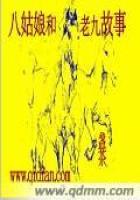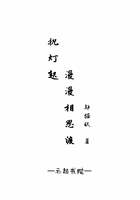The Medieval lawyer had the Christian sanctification of marriage to reckon with, and so the one old rule had to be broken up into two rules-one applicable to legitimate children, the other to bastards. In case of bastardy the tendency was decidedly in favour of retaining the Roman rule, equally suiting animals and slaves, and the later theory embodied in Littleton belongs already to the development of modern ideas in favour of liberty.*In case of legitimacy the recognition of marriage led to the recognition of the family and indirectly to the closer connexion with the father as the head of the family. In addition to this a third element comes in, which may be called properly feudal. The action of the father-rule is modified by the influence of territorial subjection. The marriage of a free man with a nief may be considered from a special point of view, if, as the feudal phraseology goes, he enters to her into her villainage.* By this fact the free man puts his child under the sway of the lord, to whose villainage the mother belongs. It is not the character of the tenement itself which is important in this case, but the fact of subjection to a territorial lord, whose interest it is to retain a dependant's progeny in a state of dependency. The whole system is historically important, because it illustrates the working of one of the chief ingredients of villainage, an ingredient entirely absent from ancient slavery; whereas medieval villainage depends primarily on subjection to the territorial power of the lord. Once more we are shown the practical importance of the manorial system in fashioning the state of the peasantry. Generally a villain must be claimed with reference to a manor, in connexion with an unfree hearth; he is born in a nest,* which makes him a bondman. The strict legal notion has to be modified to meet the emergency, and villainage, instead of indicating complete personal subjection, comes to mean subjection to a territorial lord.
This same territorial element not only influences the status of the issue of a marriage, it also affects the status of the parties to a marriage, when those parties are of unequal condition. Most notable is the case of the free wife of a villain husband lapsing into servitude, when she enters the villain tenement of her consort; her servitude endures as long as her husband is in the lord's power, as long as he is alive and not enfranchised. The judicial practice of the thirteenth century gives a great number of cases where the tribunals refuse to vindicate the rights of women entangled in villainage by a mesalliance.* Such subjection is not absolute, however. The courts make a distinction between acquiring possession and retaining it. The same woman who will be refused a portion of her father's inheritance because she has married a serf, has the assize of novel disseisin against any person trying to oust her from a tenement of which she had been seised before her marriage.* The conditional disabilities of the free woman are not directly determined by the holding which she has entered, but by her marital subordination to an unfree husband ('sub virga,'
Bract. Note-book, pl. 1685), For this reason the position of a free husband towards the villainage of his wife a nief is not exactly parallel. He is only subject to the general rules as to free men holding in villainage.* In any case, however, the instances which we have been discussing afford good illustrations of the fact, that villainage by no means flows from the ****** source of personal subjection; it is largely influenced by the Christian organisation of the family and by the feudal mixture of rights of property and sovereignty embodied in the manorial system.
There are two other ways of becoming a villain besides being born to the condition; the acknowledgment of unfree status in a court of record, and prescription. We need not speak of the first, as it does not present any particulars of interest from a historical point of view. As to prescription, there is a very characteristic vacillation in our sources. In pleadings of Edward III's time its possibility is admitted, and it is pointed out, that it is a good plea if the person claimed by prescription shows that his father and grandfather* were strangers.
There is a curious explanatory gloss, in a Cambridge MS. of Bracton, which seems to go back at least to the beginning of the fourteenth century, and it maintains that free stock doing villain service lapses into villainage in the fifth generation only.* On the other hand, Britton flatly denies the possibility of such a thing; according to him no length of time can render free men villains or make villains free men. Moreover he gives a supposed case (possibly based on an actual trial), in which a person claimed as a villain is made to go back to the sixth generation to establish his *******,* It does not seem likely that people could often vindicate their ******* by such elaborate argument, but the legal assumption expounded in Britton deserves full attention. It is only a consequence of the general view, that neither the holding nor the services ought to have any influence on the status of a man, and in so far it seems legally correct. But it is easy to see how difficult it must have been to keep up these nice distinctions in practice, how difficult for those who for generations had been placed in the same material position with serfs to maintain personal *******.* For both views, though absolutely opposed to each other, are in a sense equally true: the one giving the logical development of a fundamental rule of the law, the other testifying to the facts.
And so we have one more general observation to make as to the legal aspect of villainage. Even in the definition of its fundamental principles we see notable discrepancies and vacillations, which are the result of the conflict between logical requirements and fluctuating facts.















